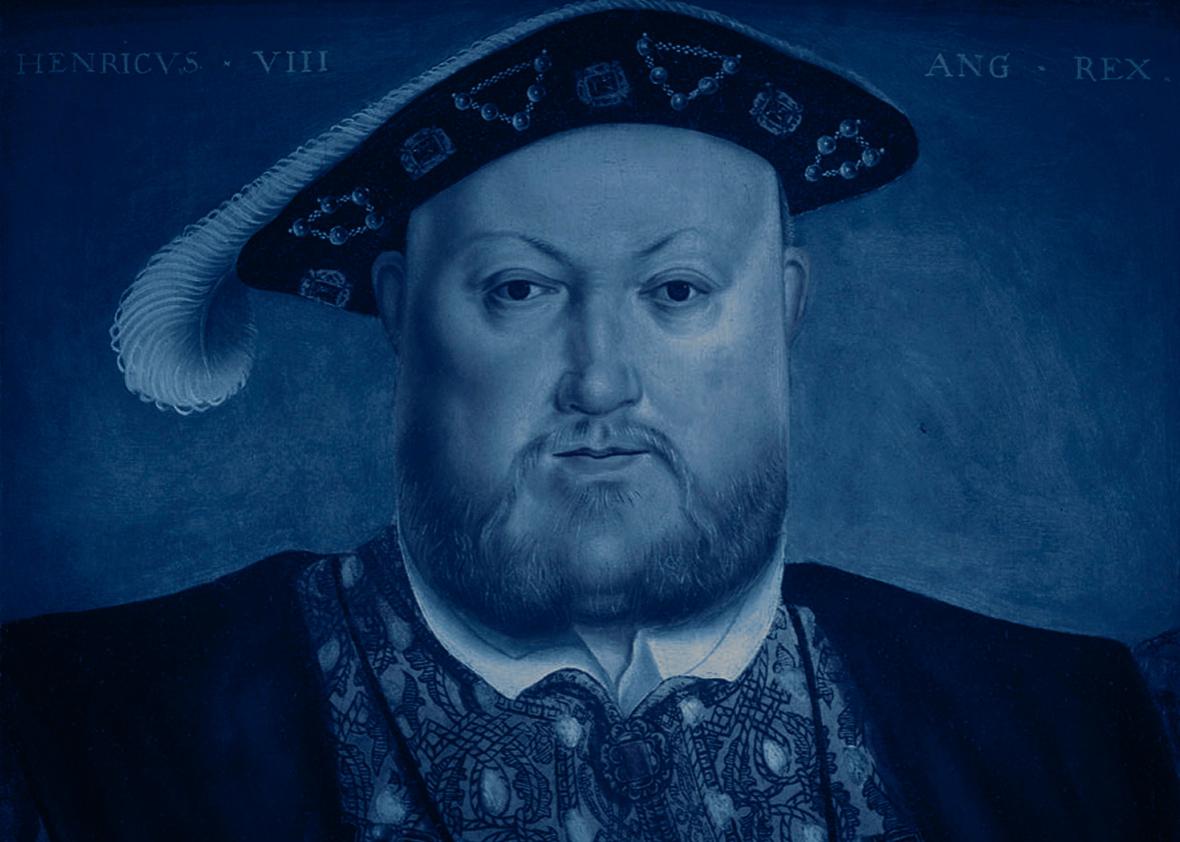I don’t mean to alarm you—your alarm clock will do that—but you have almost definitely slept on something in the past 24 hours. Maybe this revelation leaves you untroubled. Maybe you are pointing to your bed and agreeing: “Yes. Yes, I slept on that.”
Or maybe you take pride in your ability to “sleep on” things. Circumspect and willing to give a dilemma its due consideration, you refuse to rush important decisions. Your stately patience, you might point out, recalls Henry VIII. According to government papers from 1519, the king once told an adviser he wished to “slepe and drem apon the matter, and geff me an answer apon the morning.” So too the commanders of the ancient world: In Livy’s History of Rome, the consul Servilius postpones a military decision with, “I will sleepe upon it and bee well advised what to doe for the best.” Equally wise and prudent, young Meat Loaf urges his girlfriend to “let me sleep on it” before pledging to love her till the end of time in “Paradise by the Dashboard Light.”
But maybe you feel accused. An odd and masochistic strand in our culture characterizes sleep—which knits up the raveled sleeve of care, which irrigates the spirit—as wrong. She who refuses dreamland atop a satiny pile of mattresses, because of one pea, belongs on a throne. Janelle Monáe sleeps with one eye open; it is implied that the habit both enhances her badass status and makes her good at yoga.
Look no further for evidence of the continuing War on Sleep than the recent transformation of the idiom “to sleep on.” If the phrase once meant taking an issue seriously enough not to treat it hastily, now these words suggest the blinkered and irresponsible opposite: to underestimate or ignore a problem. “Don’t sleep on me hoe,” threatened the rapper Pouya in 2012. He meant: Be awake or alert to the power of my flow. A Key and Peele sketch from that same year featured Peele as a college-aged Barack Obama, talking about how to throw the most inspirational party in campus history. “Don’t sleep on Barry O,” the POTUS-to-be instructed the camera, intercepting a joint on its way around the table. The line combined the braggadocio of “Hide your kids, hide your wife” with the dignity of fulfilled prophecy.
The first widely meme’d instance of “don’t sleep on” in its “stay woke” sense may have come from How I Met Your Mother. In the 2009 episode “The Sexless Innkeeper,” a character solemnly advises his neighbor not to “sleep on the gouda” at a party. The humor here flows from the significance this guy is assigning gouda, obviously, but also from the latent threat in the imagery of repose and wakefulness. Not only does a Dutch yellow milk product merit appreciation and attention, but it calls for wariness—let no poor sluggard be surprised by gouda in the night! Tupac tugged the same ominous thread back in 1996, with his track “Don’t Sleep” (though he didn’t add the preposition on): “We gon’ ride/ Keep my pistol on my side/ Always creep wit’ the nine …Don’t sleep.” Pac’s verse points at another layer, one echoed by the Juicy J song “Real Hustlers Don’t Sleep”: The reason you don’t shut your eyes on men like Pouya, Tupac, and Barry O is because none of them are sleeping. They won’t rest until they get what they want. (Compare the oft-quoted lyric-turned–gangster movie “I’ll sleep when I’m dead.”)
Of course, by now we’ve also managed to etiolate “don’t sleep on” into a snooze-a-roo piece of marketing cant. Nike Golf unveiled a “Don’t Sleep on Summer!” swag bag in 2014 to promote several new products, including Lunar Waverly shoes and a Flex-Fit Tour Cap. (I feel OK about sleeping on a Flex-Fit Tour Cap.) Nike’s version of “don’t sleep on summer” just means “don’t not do all the summer stuff you want to do” (and also, “buy some golf gear.”) Likewise, a graphic communications blog chirpily recommends that companies “don’t sleep on the fourth quarter.” A promotional video sure hopes we don’t sleep on the “alcoenergy drink” Rave Up. (We won’t! One bottle contains 1,080 mg of caffeine.)
The “be inert or inactive” sense of “sleep” has a long history. As early as 800, anything passive or dormant might be said to “sleep,” according to the Oxford English Dictionary. From 1817, businessmen spoke of “sleeping partners” in commercial ventures—people or institutions who did not share in the actual workings of the enterprise. During the Cold War, a “sleeper cell” came to denote a unit of spies or terrorists who lay quiescent in a host country.
Unsurprisingly, inertia and inactivity don’t always mesh well with the American ethos. We are doers! And we are also chronically zzz-deprived. On the Beyoncé track “Mine,” guest artist Drake raps his version of carpe diem: “Don’t sleep when you know you got it good, girl.” That entreaty—don’t miss out—seems a little softer, a little safer, than the warning not to let down your guard, because the gouda is coming. But to a sleep partisan, it still feels depressingly negative. I long for the days of Servilius and Henry VIII, when to “sleep on” a matter exposed one’s judgment, not one’s unpreparedness or sloth. Maybe mounting awareness of the virtues of shut-eye will swing the linguistic pendulum in a more forgiving direction. (Watch that linguistic pendulum. Are you getting drowsy?) Hey, if she can’t sleep, a girl can dream.
Read more from the Drift, Slate’s pop-up blog about sleep.
